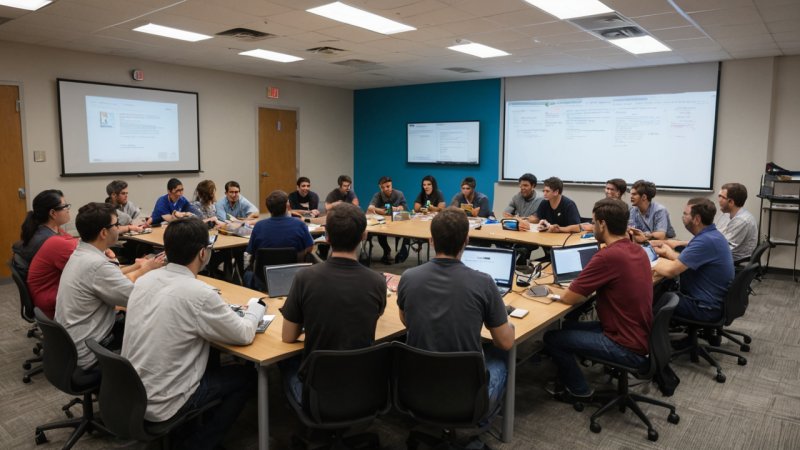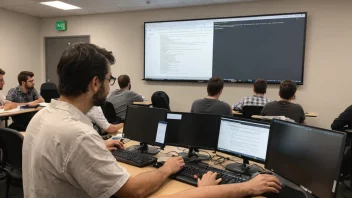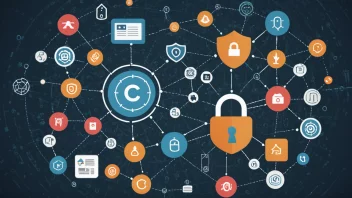The education sector has witnessed a remarkable transformation with the advent of open source contributions, promoting collaboration and innovation. This article aims to compare various aspects of open source contributions in education, highlighting their advantages, challenges, and overall impact on learning environments. By examining both the benefits and drawbacks, we hope to provide a comprehensive understanding of how open source initiatives are shaping education.
What Are Open Source Contributions?
Open source contributions refer to the practice of making software and resources publicly available for anyone to use, modify, and distribute. In the educational context, this can include everything from learning management systems (LMS) to educational content and tools. The collaborative nature of open source allows educators, developers, and students to work together, improving resources and tools for everyone involved.
The Benefits of Open Source Contributions in Education
1. Accessibility
One of the primary benefits of open source contributions is accessibility. Open source educational resources are often free to use, which allows institutions and individuals, regardless of their financial background, to access quality educational tools. This democratization of education fosters inclusivity and equal opportunities for all learners.
2. Customization and Flexibility
Open source projects can be tailored to meet specific needs. Educators can customize software to align with their teaching methods and curricular requirements without being limited by proprietary software constraints. This flexibility encourages innovation and adaptation in teaching practices.
3. Community Collaboration
Open source contributions foster a sense of community. Educators and developers can collaborate on projects, share insights, and learn from one another. This collaborative approach often leads to higher-quality resources, as multiple perspectives and expertise are integrated into the development process.
4. Continuous Improvement
With open source projects, improvements can be made continuously. Users can report bugs, suggest features, and even contribute code to enhance the software. This iterative process ensures that educational tools remain relevant and effective in meeting the evolving needs of learners and educators.
The Challenges of Open Source Contributions in Education
1. Sustainability
While open source contributions have many advantages, sustainability can be a significant challenge. Many projects rely on volunteer efforts, which may lead to fluctuations in development and support. Without consistent funding or dedicated contributors, projects may stagnate or become obsolete.
2. Quality Control
Open source contributions can vary in quality. Unlike proprietary software, which often undergoes rigorous testing and quality assurance, open source projects may not have the same level of scrutiny. This inconsistency can lead to issues with reliability and usability, potentially impacting the learning experience.
3. Technical Expertise
Using and contributing to open source projects often requires a certain level of technical expertise. Educators and students may face a learning curve when engaging with these tools, which can be a barrier to effective implementation. Training and support are essential to help users navigate these challenges.
4. Fragmentation
The open source landscape can be fragmented, with numerous tools and resources available. This abundance can lead to confusion for educators seeking the best solutions for their needs. Without a clear understanding of which tools are the most effective, educators may struggle to make informed decisions.
Case Studies of Open Source Contributions in Education
1. Moodle
Moodle is a widely used open source learning management system that exemplifies the benefits of open source contributions in education. Its accessibility allows schools and universities to offer flexible online learning options. The platform benefits from continuous community contributions, leading to regular updates and improvements. However, some institutions have faced challenges related to customization and technical support.
2. Khan Academy
Khan Academy provides an exemplary case of open source educational content. While it is not entirely open source, it embraces many principles by offering free educational resources. The platform allows educators to customize learning experiences for their students, but maintaining the quality and relevance of the content requires ongoing collaboration and contributions from the education community.
Conclusion
Open source contributions in the education sector present both significant benefits and notable challenges. The accessibility, customization, community collaboration, and continuous improvement potential of open source projects can transform educational practices. However, sustainability, quality control, technical expertise, and fragmentation remain critical challenges that need addressing. Ultimately, the success of open source initiatives in education hinges on the collective efforts of stakeholders to create a supportive environment that encourages collaboration and innovation.






